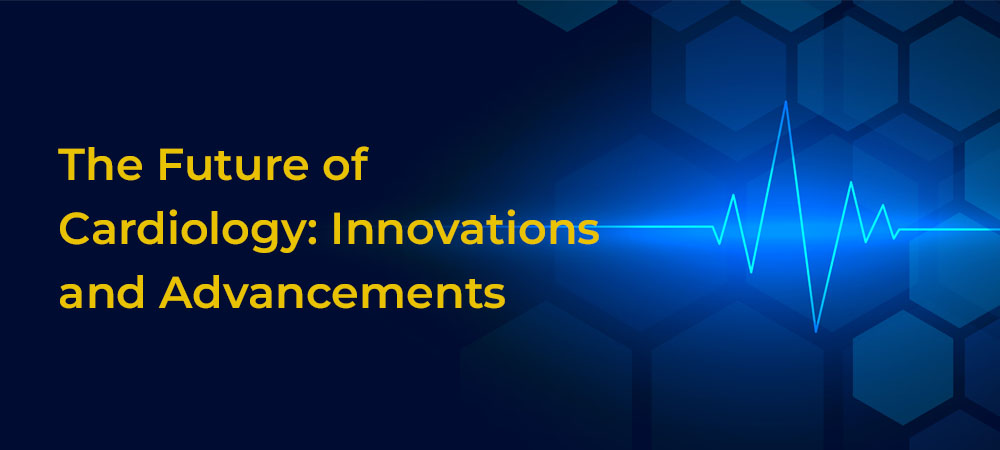The Future of Cardiology: Innovations and Advancements
The field of cardiology has always been at the forefront of medical innovation, with continuous advancements driving better outcomes for patients. As technology evolves, the future of cardiology promises even more groundbreaking changes that could transform the way heart diseases are diagnosed, treated, and managed. Here's a look at some of the most exciting innovations and advancements shaping the future of cardiology.
1. Artificial Intelligence (AI) and Machine Learning
Artificial intelligence (AI) is poised to revolutionize cardiology by enhancing diagnostic accuracy, predicting patient outcomes, and personalizing treatment plans. Machine learning algorithms can analyze vast datasets to identify patterns and trends that might be missed by human eyes. These technologies are already being used to interpret medical images, predict the likelihood of heart attacks, and even suggest the most effective treatment options based on individual patient data.
2. Wearable Technology and Remote Monitoring
Wearable devices like smartwatches, fitness trackers, and specialized heart monitors are becoming integral tools in cardiology. These devices continuously monitor vital signs such as heart rate, blood pressure, and oxygen levels, providing real-time data that can alert both patients and healthcare providers to potential issues. The future of cardiology will likely see even more advanced wearables that offer comprehensive monitoring, enabling early detection and intervention for heart conditions.
3. 3D Printing and Personalized Implants
3D printing is making its mark in cardiology by allowing the creation of personalized implants, prosthetics, and even heart valves. This technology enables the production of patient-specific devices that fit perfectly, reducing the risk of complications and improving overall outcomes. In the future, 3D printing could be used to create entire organs, offering a revolutionary solution for patients with severe heart conditions who require transplants.
4. Regenerative Medicine and Stem Cell Therapy
Regenerative medicine is one of the most promising areas of research in cardiology. Stem cell therapy, in particular, holds the potential to repair or replace damaged heart tissue, offering hope to patients with heart failure or other severe conditions. Scientists are exploring ways to regenerate heart muscle, improve blood vessel function, and even grow new heart tissue in the lab. As this research progresses, regenerative medicine could become a cornerstone of cardiac care.
5. Genomics and Precision Medicine
Genomic research is unlocking new possibilities in the diagnosis and treatment of heart disease. By understanding a patient’s genetic makeup, doctors can identify specific risks and tailor treatments to the individual. Precision medicine, which considers genetic, environmental, and lifestyle factors, allows for more effective and personalized treatment plans. In the future, genomic testing could become routine in cardiology, leading to earlier detection and more targeted therapies.
6. Telemedicine and Virtual Care
The COVID-19 pandemic accelerated the adoption of telemedicine, and its impact on cardiology has been profound. Virtual care allows patients to consult with cardiologists from the comfort of their homes, reducing the need for in-person visits and making healthcare more accessible. As telemedicine technology continues to improve, it will likely play an even more significant role in cardiology, especially in remote or underserved areas.
7. Advanced Imaging Techniques
The future of cardiology will be shaped by increasingly sophisticated imaging techniques. Technologies like 4D imaging and functional MRI are providing more detailed and accurate views of the heart than ever before. These advanced imaging methods allow for better diagnosis, treatment planning, and monitoring of heart conditions. As imaging technology continues to evolve, cardiologists will have even more powerful tools at their disposal.
8. Improved Drug Therapies and Targeted Treatments
Pharmacology is another area where significant advancements are expected. New drug therapies are being developed to more effectively manage heart conditions, reduce side effects, and improve patient outcomes. Targeted treatments, which focus on specific pathways or mechanisms in the body, are also on the rise. These therapies can provide more precise and effective solutions for patients with complex heart conditions.
9. Smart Hospitals and Connected Devices
The concept of smart hospitals is becoming a reality, with connected devices and systems improving patient care and outcomes. In cardiology, this means integrated monitoring systems that provide continuous data to healthcare providers, enabling them to make real-time decisions. Smart hospitals also facilitate better communication between different departments, ensuring that patients receive the most efficient and effective care.
10. Robotic-Assisted Surgery
Robotic-assisted surgery is already transforming cardiac procedures by providing greater precision and control. Surgeons can perform complex operations with smaller incisions, reducing recovery time and minimizing complications. As robotics technology advances, we can expect even more sophisticated surgical tools that enhance the capabilities of cardiac surgeons and improve patient outcomes.
Conclusion
The future of cardiology is bright, with numerous innovations and advancements on the horizon. These developments have the potential to significantly improve the diagnosis, treatment, and management of heart conditions, ultimately saving lives and enhancing the quality of life for millions of people worldwide.
By staying informed about these emerging technologies and working with expert cardiologists, patients can ensure they receive the most advanced and effective care available. Whether it's AI-driven diagnostics, regenerative medicine, or telemedicine, the future of cardiology holds immense promise for both patients and healthcare providers.



